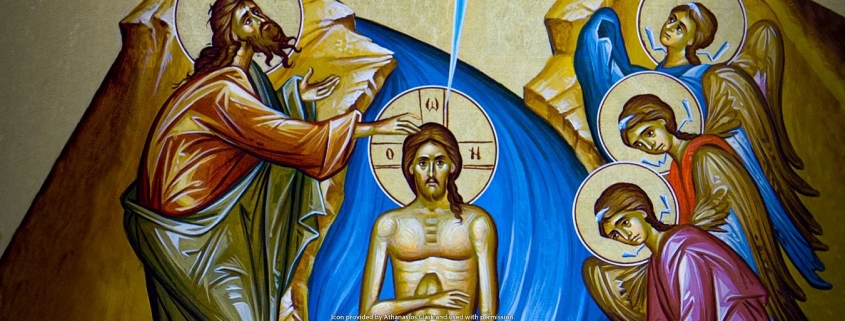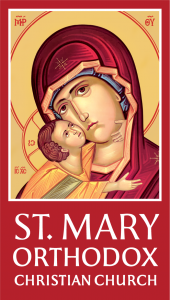On Epiphany, Part Two By Metropolitan Saba (Isper)
This feast is an occasion for the believers to examine themselves about the activation of the grace of baptism in their personal lives. The day of our baptism is the day of our true birth, in which we have acquired the sonship of God, and we have put on Christ, as the famous hymn says: “You who are baptized in Christ, in Christ you have been clothed” (see Gal. 3:27). After baptism, the baptized person becomes Christ-like, and must therefore preserve this grace, keep it, and even develop and grow in it, in order to reach the stature of the fullness of Christ.
Saint Gregory Palamas says: “Just as a child takes from his parents the possibility of becoming a man, inheriting parental property upon reaching the appropriate age, but loses it if he dies in the process, so the Christian obtains, by baptism, the ability to become a child of God, an heir of eternal goods, if he (she) does not die spiritually in the course of his (her) life, which is sin.” Sin causes us to lose the graces that we received through baptism.
Use this teaching to reflect on the greatness of the sacrament of baptism and its importance to Christians. This feast invites us to review ourselves and our behavior, in two ways. The first is to preserve the graces of baptism and to cultivate them in us, lest we lose them. It is an occasion to return to the meaning of baptism, to prove the mettle, to preserve it in us, and to live it in its fullness.
The second is the evaluation of our practice of the fulfillment of the sacrament of baptism. The first of these evaluations is to stop choosing the godfather or godmother because of kinship, friendship, or the desire to “whiten the face.”1 We must choose a godly believer who will take this responsibility seriously and be truly a spiritual father or mother. Evaluating the completion of this sacrament means removing it from the prevailing folklore in the way we deal with it and considering it a very serious and important work. We prepare for it by prayer and fasting, and we complete it in a spirit of piety and reverence. We do not consider it a social occasion, nor do we delay it for social or personal reasons. It is an event in which our son or daughter takes the most important thing that a person can receive: the grace to be clothed in Christ and become a son or daughter of God.
The issue of blessing our homes and dedicating them to God comes after the festal liturgy. It is an authentic, honorable Christian tradition. Holy water is a way to bring divine blessing to the home, and we must not lose this practice. Today, this authentic tradition is subject to many obstacles, especially in cities, due to their expansion, living conditions and the schedules of the family. It is imperative for both faithful and priests to strive to find the best way to schedule house blessings. For example, the faithful take the initiative to contact the priest, in order to determine the appropriate time for both, to complete the blessing of the house, and the priest urges the faithful to complete this matter, by pursuing them and communicating diligently with them.
It is necessary for the priest to wear his epitrachelion (stole) while blessing homes with water, treating this as a sacramental act. The epitrachelion symbolizes God’s grace descending through the sprinkling of holy water and prayer. When putting it on, the priest says, just like he vests in preparation for the Divine Liturgy: “Blessed be God who pours out His grace upon His priests like the oil of myrrh upon the head, descending upon Aaron’s beard, down to the fringe of his raiment.”
Then, the priest chants, with the people of the household that he blesses, the apolytikion of Epiphany, “By Your baptism, O Lord, in the Jordan River…” Children should learn to recite it for the sake of the household.
Let us not allow these holy days to pass without taking advantage of them spiritually. This is why we have them.
1 An Arabic-language expression that means to maintain social graces.




